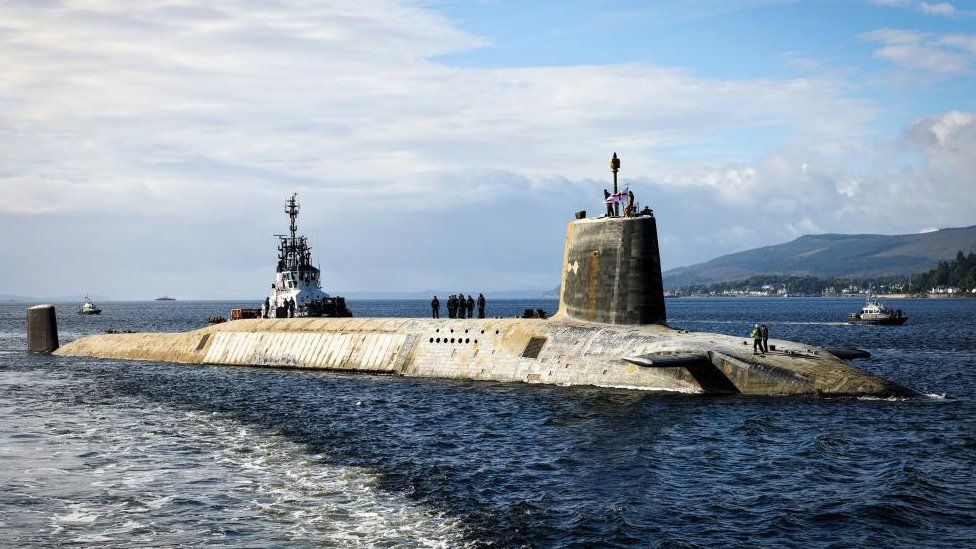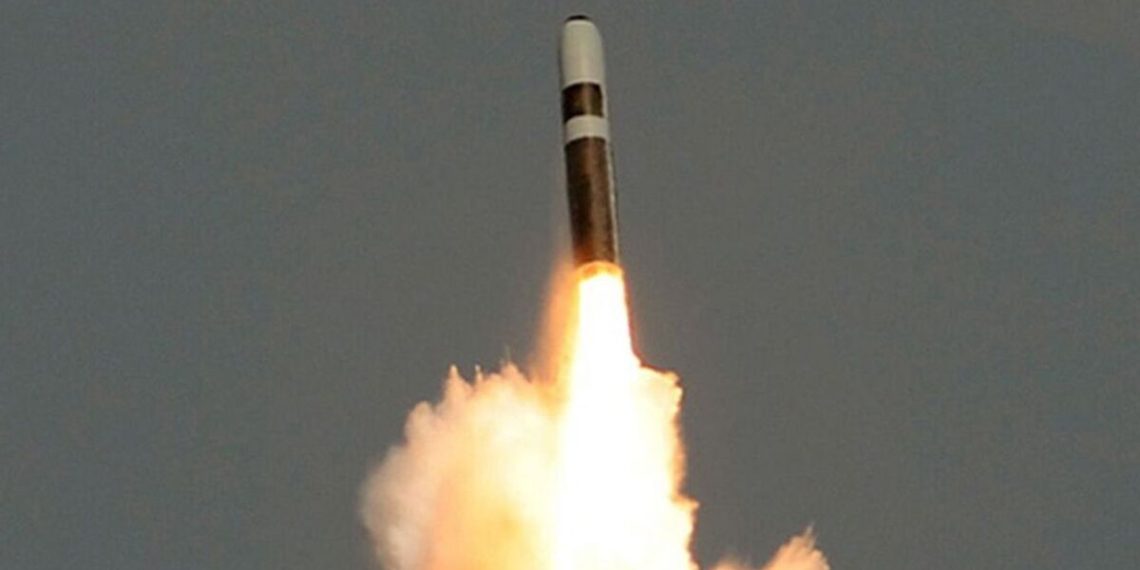A British Trident missile test experienced a malfunction during a trial launch off the coast of Florida, marking the second such incident in eight years with the country’s nuclear deterrent system. The UK Ministry of Defense confirmed the anomaly, stating it was “event specific” and didn’t affect the reliability of the broader Trident missile systems.
The test, conducted aboard the nuclear-powered submarine HMS Vanguard, encountered issues with the first-stage boosters of the missile, causing it to sink into the ocean after the dummy warhead was propelled into the air.
Despite the setback, the Ministry of Defense emphasized the safety, security, and effectiveness of the UK’s nuclear deterrent. Minister of Defense Grant Shapps was reportedly present during the test, along with First Sea Lord Admiral Sir Ben Key.
The ministry further assured that the submarine and its crew had previously demonstrated their capability during a routine test following maintenance work.
Labour’s shadow Defense Secretary, John Healey, expressed concern over the reports, emphasizing the need for reassurance regarding the effectiveness of the UK’s deterrent operations.

The UK maintains four nuclear-powered ballistic missile submarines, armed with American-made Trident 2 D5 missiles capable of reaching targets up to 4,000 miles away. The Trident II D5 missile inventory is shared with the United States and housed at a facility in Georgia, with an estimated annual cost of $15.1 million (£12 million) as of 2015.
While the incident raises questions about the reliability of the Trident missile system, the Ministry of Defense maintains confidence in its effectiveness and security.
The malfunction underscores the complexities and risks inherent in maintaining and testing nuclear weapons systems, highlighting the importance of rigorous testing and ongoing monitoring to ensure operational readiness and deterrence capabilities.





